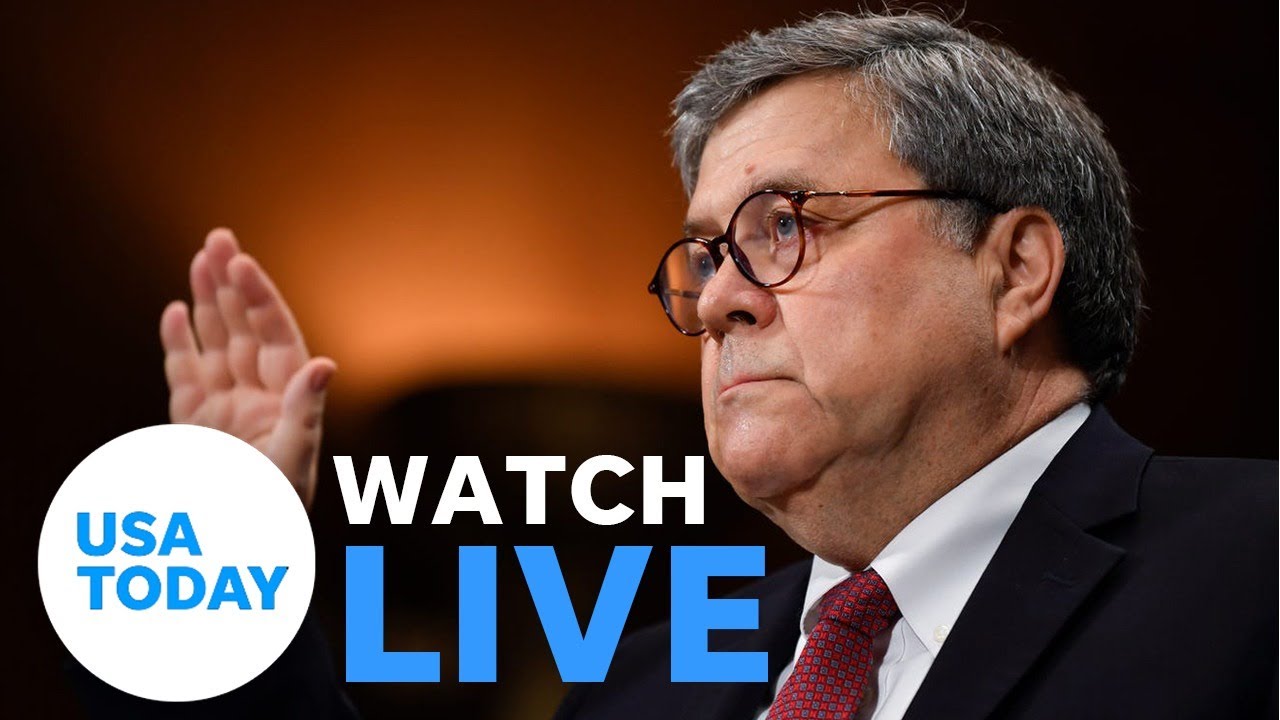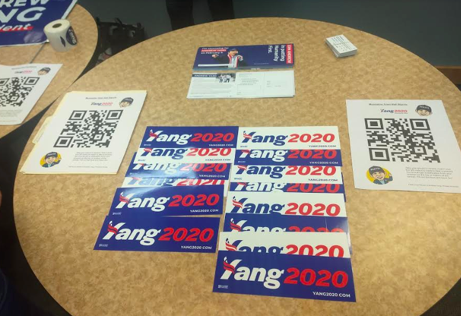WASHINGTON – Attorney General William Barr cast the nightly protests in Portland, Oregon, where government officers and the federal courthouse have now become primary targets for demonstrators, as “an assault on the government of the United States.”
With tensions flaring in cities across the country, Barr offered an unmitigated defense before a House committee Tuesday for the deployment of federal officers to Portland where he referred to “a mob” of hundreds of protesters who have hijacked legitimate demonstrations of police brutality following the May 25 death of George Floyd at the hands of Minneapolis police.
“Largely absent from these scenes of destruction are even superficial attempts by the rioters to connect their actions to George Floyd’s death or any legitimate call for reform,” the attorney general said in a prepared statement. “Nor could such brazen acts of lawlessness plausibly be justified by a concern that police officers in Minnesota or elsewhere defied the law.”
“It is, by any objective measure, an assault on the Government of the United States.”
AG Barr:DOJ had been drawn into ‘political maelstrom’; department used as ‘political weapon’
Barr’s long-sought testimony – his first before the House Judiciary Committee – comes as part of House Democrats’ investigation into allegations of political interference at the Justice Department and claims that the attorney general has turned it into a political annex of the Trump White House.
Chairman Jerry Nadler, D-N.Y., quickly seized on Barr’s defense of the Portland response, saying that the government action to deploy at least 114 officers to the city has “projected fear and violence.”
Asked whether Barr had discussed the deployment of federal officers with President Donald Trump as part of a re-election campaign strategy, the attorney general said he would not discuss conversations with the president.
“Shame on you, Mr. Barr,” Nadler said. “Shame on you.”
The hearing, billed as an oversight of the Justice Department, touched on a year’s worth of grievances, from the widely criticized roll-out of special counsel Robert Mueller’s Russia report in 2019, to interference in criminal investigations involving President Donald Trump’s allies, to the use of force against protesters in Portland and at Lafayette Square in Washington, D.C.
“The message these actions send is clear: in this Justice Department, the President’s enemies will be punished, and his friends will be protected, no matter the cost,” Nadler said.
Democrats pressed Barr on the deployment of federal agents to Portland, saying doing so only fueled the violence in what had been largely peaceful protests. Democrats also criticized the expansion of Operation Legend, a federal crime initiative that was launched in Kansas City, Missouri, in which more than 200 agents were dispatched. Since then, Trump and Barr announced the deployment of 50 agents to Albuquerque, New Mexico, and as many as 300 officers to Chicago. Democrats questioned whether it was a legitimate deployment of law enforcement resources – against the wishes of local and state officials – or a stunt to help Trump’s reelection.
Barr pushed back against such characterizations, saying Democrats are conflating federal deployment to Portland, where federal agents have been the target of violent attacks, and the use of federal resources in cities where he says violent crime has risen.
“We are on the defense,” Barr said on the federal response in Portland. “We’re not out looking for trouble.”
Barr also pushed back against allegations that he’s targeting Trump’s enemies: “What enemies have I indicted?”
Barr offered a forceful defense of his actions as the nation’s chief law enforcement officer, asserting that he has acted apart from the interests of the White House while “applying a standard of justice without partisan considerations.”
Federal deployments:Mayors see broken trust, political agenda in Trump’s surge of federal officers to US cities

Of mounting questions about favorable decisions rendered in a series of cases involving Trump and his allies, Barr said that his actions “have been my own.”
“And they have been made because I believed they were right under the law and principles of justice,” according to Barr’s statement.
Barr referred to the Russia investigation as “bogus,” and that he has paid a personal price for his actions since.
“Ever since I made it clear that I was going to do everything I could to get to the bottom of the grave abuses involved in the bogus ‘Russiagate’ scandal, many of the Democrats on this Committee have attempted to discredit me by conjuring up a narrative that I am simply the President’s factotum who disposes of criminal cases according to his instructions,” he said. “Judging from the letter inviting me to this hearing, that appears to be your agenda today.”
Addressing ongoing protests over police abuses that have sparked protests nationwide, Barr said that brutality involving police remains rare. He said that Floyd’s death and others like it “strike a deep chord in the black community because they are perceived as manifestation of the deeper, lingering concern that, in encounters with police, blacks will not be treated even-handedly; they will not be given the benefit of the doubt; they will be treated with greater suspicion than a white person would be in the same circumstances.”
“I think these concerns are legitimate,” Barr said in the statement, though he suggests that police shouldn’t bear all of the blame.
“I think it would be an oversimplification to treat the problem as rooted in some deep-seated racism generally infecting our police departments,” Barr said. “It seems far more likely that the problem stems from a complex mix of factors, which can be addressed with focused attention over time.”
Barr also cited so-called black-on-black crimes.
“The threat to black lives posed by crime on the streets is massively greater than any threat posed by police misconduct. The leading cause of death for young black males is homicide. Every year approximately 7,500 black Americans are victims of homicide, and the vast majority of them – around 90 percent – are killed by other blacks, mainly by gunfire. Each of those lives matter,” he said.
The Tuesday hearing follows testimony from current and former Justice Department officials who accused the agency’s leadership of impropriety.
Last month, a Justice Department prosecutor said the department’s leadership gave longtime friend of the president Roger Stone “unprecedentedly favorable treatment” by pushing for a more lenient prison sentence against the recommendation of career prosecutors. Stone was convicted of lying to Congress to protect Trump and his campaign. The president has since commuted Stone’s sentence.
‘What a disaster’:Aggressive federal response in Portland raises legal questions
Aaron Zelinsky, one of the attorneys who prosecuted Stone, told lawmakers he and the other attorneys who prosecuted the GOP operative were pressured to “cut Stone a break,” or they could be fired.
During his testimony, Barr said he believes the prosecution of Stone was “righteous,” but he said the prosecutors’ sentence recommendation was too harsh.
“I agree the president’s friends don’t deserve special breaks, but they also don’t deserve to be treated more harshly,” Barr said.
Last month, Barr and ousted Manhattan U.S. Attorney Geoffrey Berman publicly clashed over control of the Southern District of New York (SDNY), one of the Justice Department’s most prestigious offices that has investigated and prosecuted Trump’s allies and former associates. During a chaotic weekend last month, Berman accused Barr of not being truthful after the Justice Department announced – prematurely, according to Berman – that he was leaving his post.
The weekend ended with Berman’s firing.
Berman later testified that Barr repeatedly pressed him to resign to make way for Trump’s desired nominee, telling him he would be fired if he refused to do so and even offering a high-ranking position within the Justice Department. During the closed-door testimony, Berman said he questioned why he was being asked to leave before a nominee is confirmed and was critical of Barr’s decision to appoint an outsider as a temporary replacement, calling it “unprecedented, unnecessary and unexplained.”
Berman declined to speculate on Barr’s motives, but he said the attorney general’s “irregular and unexplained actions” were problematic, according to a transcript of the testimony.



